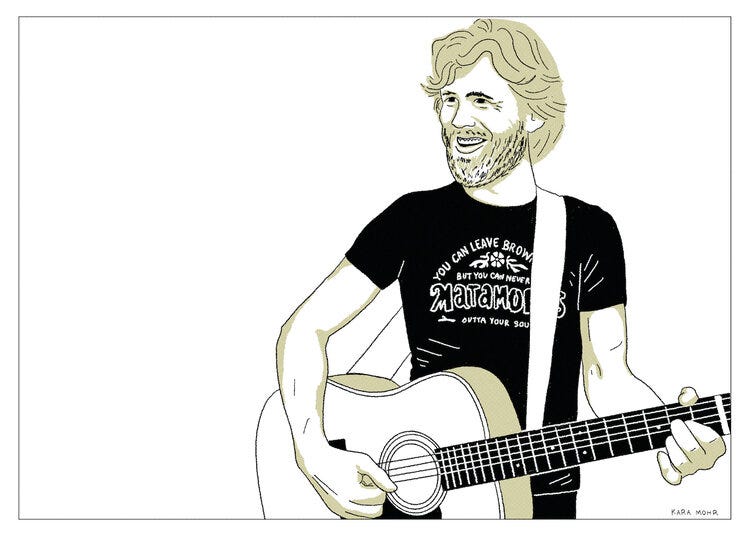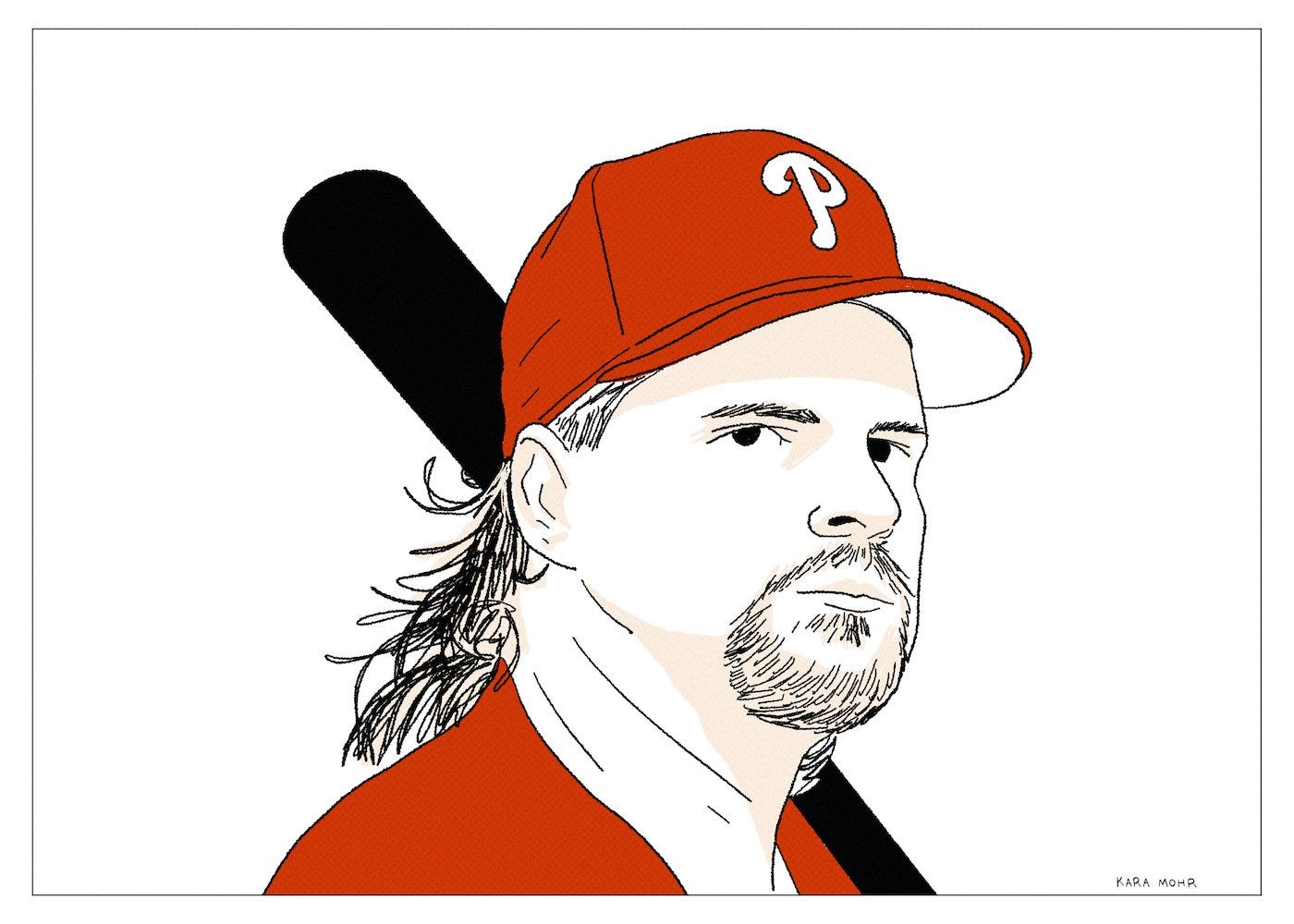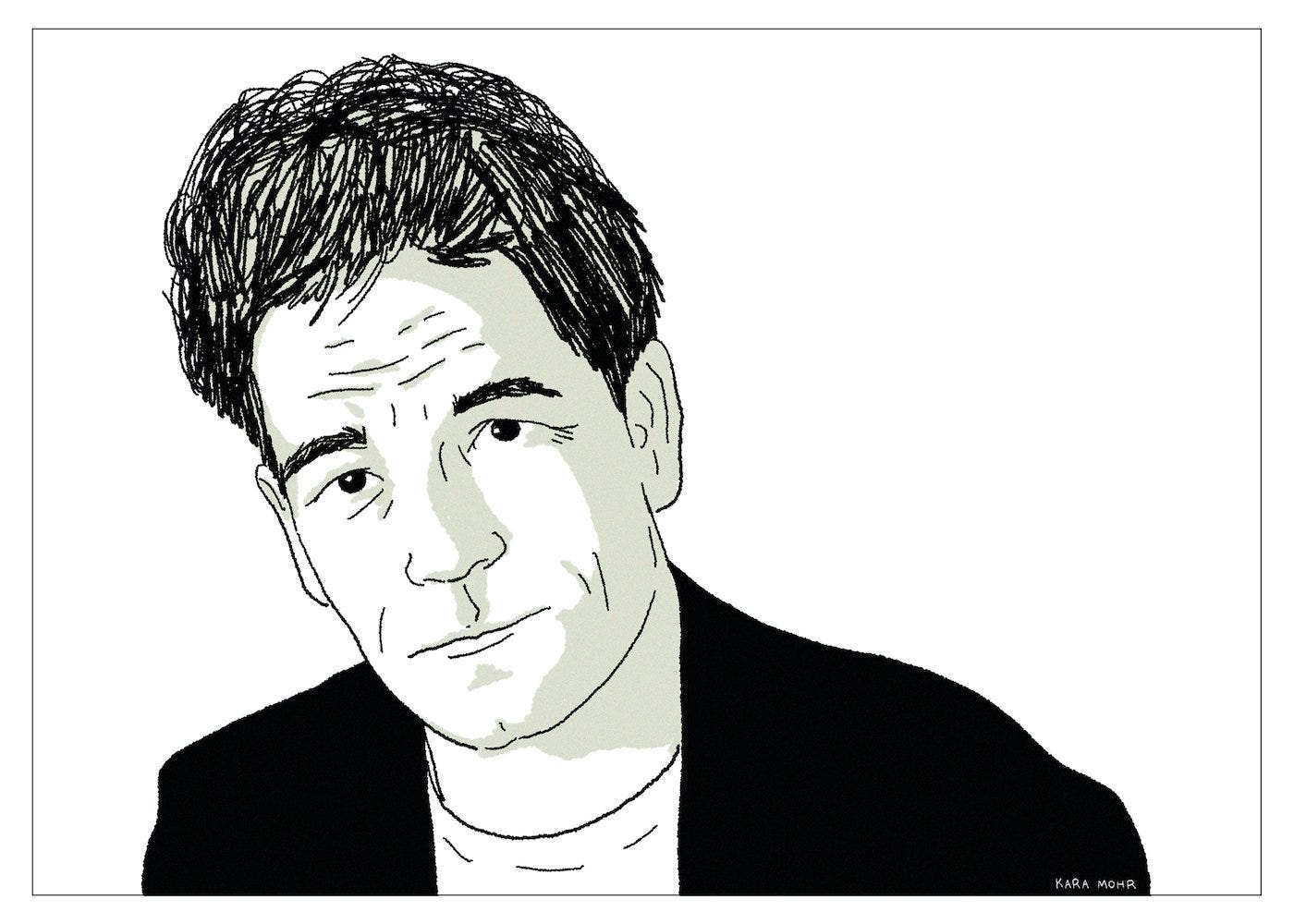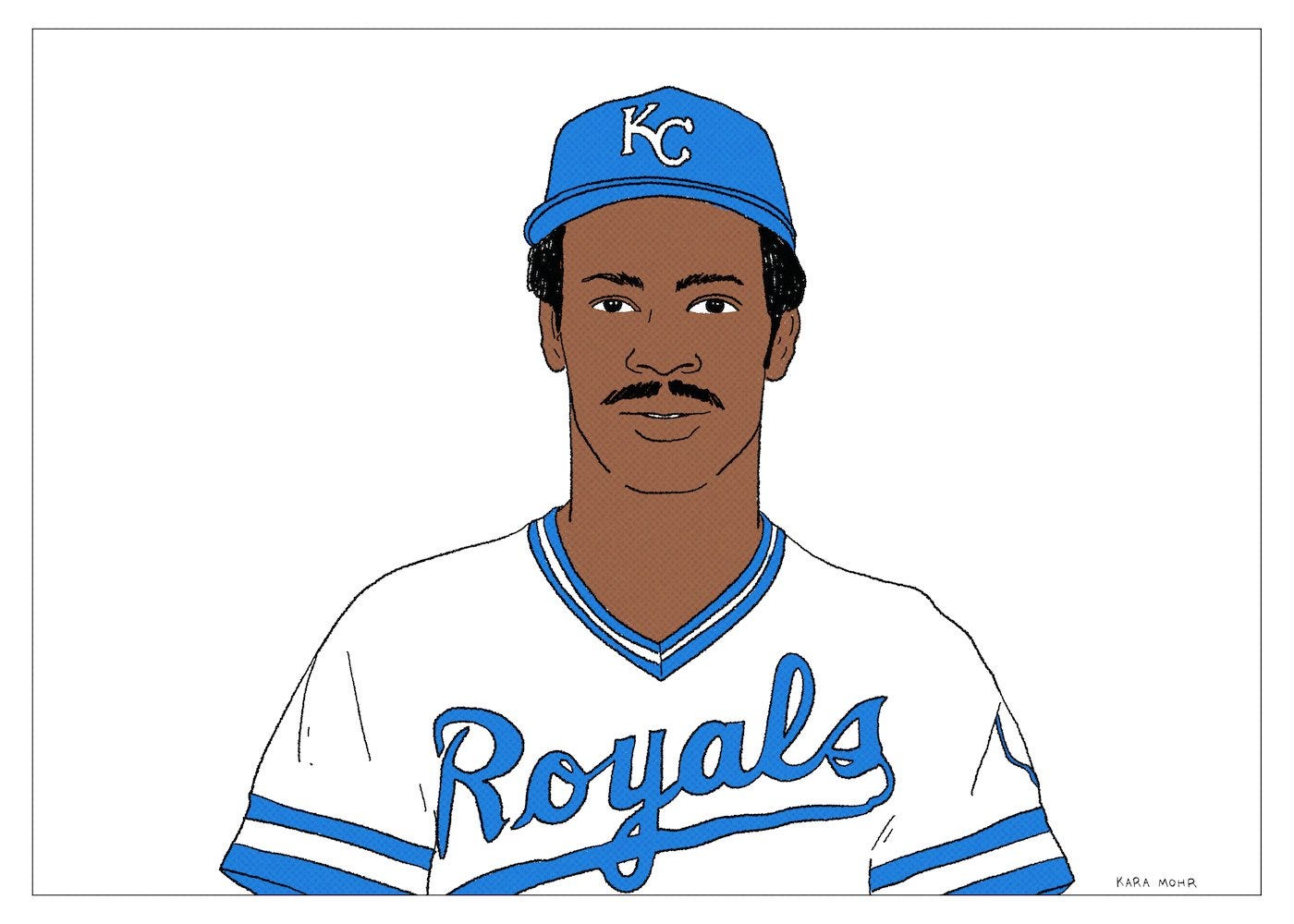Past Prime #21
Joey Ramone, John Kruk, Huey Lewis, John Tesh & Kris Kristofferson
Because it’s now officially Fall, the season of post-season baseball, I had intended to open with an homage to John Kruk — the three time All-Star & owner of the most glorious mullet in sports history who, in 1993, was nearly beheaded by Randy “The Big Unit” Johnson. But upon reflection, and since I’m presently just a block away from the former home of CBGBs, it felt wrong to not kick things off with our love letter to Joey Ramone.
Either Kruk or Joey would have been worthy choices. Ultimately, though, it had to be Kris Kristofferson. Kris — collegiate athlete, Rhodes Scholar, Army Captain, singer, writer, ladies’ man, leading man & outlaw — died on September 28th. And so, I’m dedicating this issue to him — to all nine of his lives, to "Sunday Mornin' Comin' Down,” to “Pat Garrett and Billy the Kid “ and to the most unflinchingly honest divorce album ever made.
John Kruk “The Mullet Gives You Permission”
In 1972, President Richard Nixon made a diplomatic visit to mainland China where he finally, formally recognized the Communist government. Conventional wisdom suggested that only Richard Nixon, with his unimpeachable anti-communist bona fides, could have made such a conciliatory move. In the case of Nixon and China, for the truth to be heard, a very specific messenger was required. Twenty-one years later, baseball got its Nixon and China moment when John Kruk faced Randy Johnson in the third-inning of the 1993 All-Star Game. During that legendary, if swift, at bat, Kruk revealed a truth that had been suppressed for years but which he alone could effectively convey: fastballs are terrifying.
Joey Ramone “Don’t Worry About Me”
“Don’t Worry About Me” is almost exactly what you'd expect from a Joey Ramone on death's doorstep solo album. Which is to say it’s alternately frightened, bored, unfinished, funny, maudlin and brilliant. Joey croons, bleats and tawks his way through eleven tracks, all (but one) of which clock in under four minutes, but none of which are under two. The (by Ramones’ standards) mid-tempo nature of “Dont Worry About Me” — the seeming lack of rush — suggests a pace afforded by age, poor health and, most of all, no Johnny Ramone. Johnny had zero time for bullshit. But, especially at the very end, Joey had all the time in the world for it.
Huey Lewis and The News “Plan B”
The Nineties were a fallow period for Huey Lewis and The News. Following a decade wherein they released nine albums, the band mustered just two over the next ten years. His platinum-selling, chart-topping days were a thing of the past, but his transition from Heartland New Wave to aging Mom-and-Dad-core was both graceful and inevitable. In some ways it made much less sense that Huey Lewis was ever a bonafide Pop star and more sense that he was a charming screen presence who occasionally put out R&B albums. By 2001, at the age of fifty, Huey had finally achieved his pop culture destiny, settling into his rightful place as Bruce Willis’ less theatrically — but much more musically talented — cousin.
Recorded in the summer of 1994, “Live at Red Rocks” first aired on PBS in the Spring of 1995 and hit stores just a few months later. In the thirty plus years since, it’s become synonymous with both “Nineties New Age” and “PBS fundraising.” Which is to say that it is simultaneously elaborate (not minimalist or tranquil) and cheap (free with donation). As an album of recorded music, it is almost farcical. But as a concert movie, it's positively gripping. For one windy night, against an breathtaking backdrop, accompanied by the Colorado Symphony Orchestra, and dressed in a three piece purple suit, John Tesh — the co-host of "Entertainment Tonight" — thrilled a rapt audience of dedicated philanthropists and Olympic gymnastic enthusiasts.
It’s trite to suggest that, in life, your blessing becomes your curse, but in the case of Willie Wilson — who possessed the ultra-rare ability to turn doubles into triples & triples into home runs, but who seemingly could not take a walk or hit the ball over the fence — that cliche seems especially true. So gifted, so fast and so strong, he would have been an All Star in most any professional sport. But the sport he chose was the one which least suited his particular genius. Willie Wilson was the greatest of all time at the parts of baseball that we kind of understand but can only barely measure.







